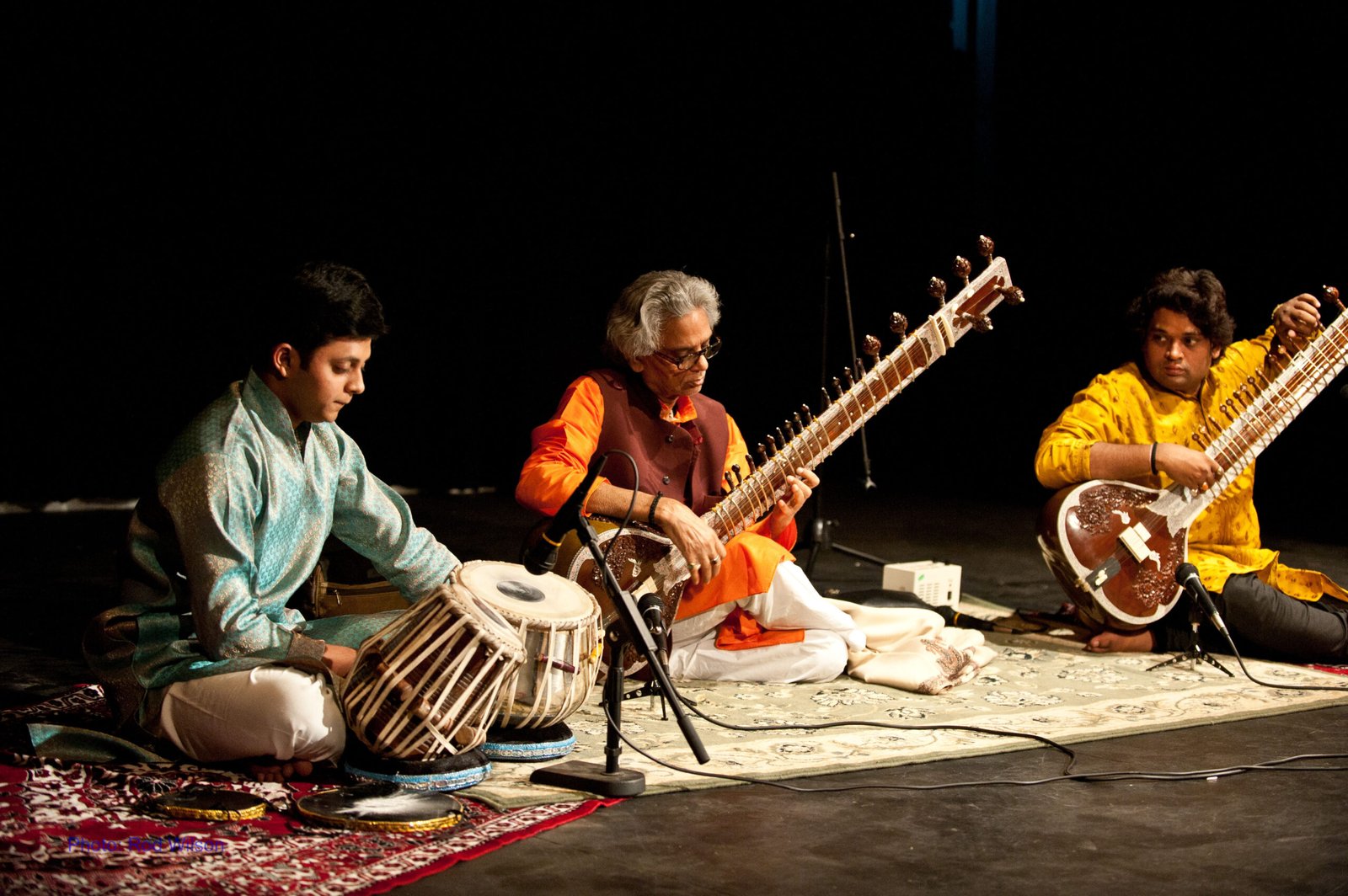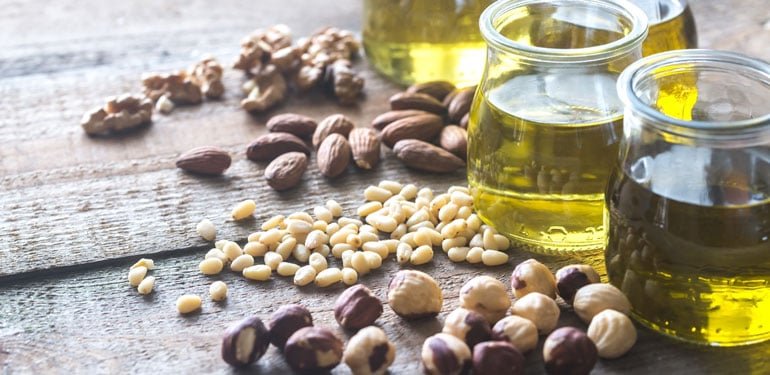Ramadan, It is the 9th month of Islamic Calendar, Hijri. Sight of the new crescent moon marks the starting of Ramadan as the Hijri calendar depends on the moon. Ramadan is observed by Muslims worldwide.
During Ramadan, Muslims fast from dawn to sunset, abstaining from food, water, and other physical needs. In addition to fasting and increased worship, Ramadan is also a time for Muslims to connect with family and friends. The fast is broken at sunset with a meal called Iftar.
Iftar and Sahoor
The word “Iftar” comes from the Arabic which means to break or open. Iftar is the meal that Muslims consume to break their fast during Ramadan. It is eaten at sunset, after Maghrib prayer, one of the five daily prayers performed by Muslims. It is offered at sunset, soon after the sun goes below the horizon.
Muslims traditionally break their fast with dates and water, This is done to provide a quick source of energy to the body after a day of fasting. After that they usually have a full meal which is called “Sahoor.”
The iftar meal can vary greatly depending on the culture and traditions of the region. In some places, Iftar is a time for families and friends to gather and enjoy a large meal together. In other places, it is customary to break the fast with a light meal before continuing with other activities and eating a larger meal later in the evening.
Overall, both Iftar and Sahoor is a special time for Muslims during Ramadan. It marks the end of a long day of fasting and provides an opportunity for individuals to connect with their families.
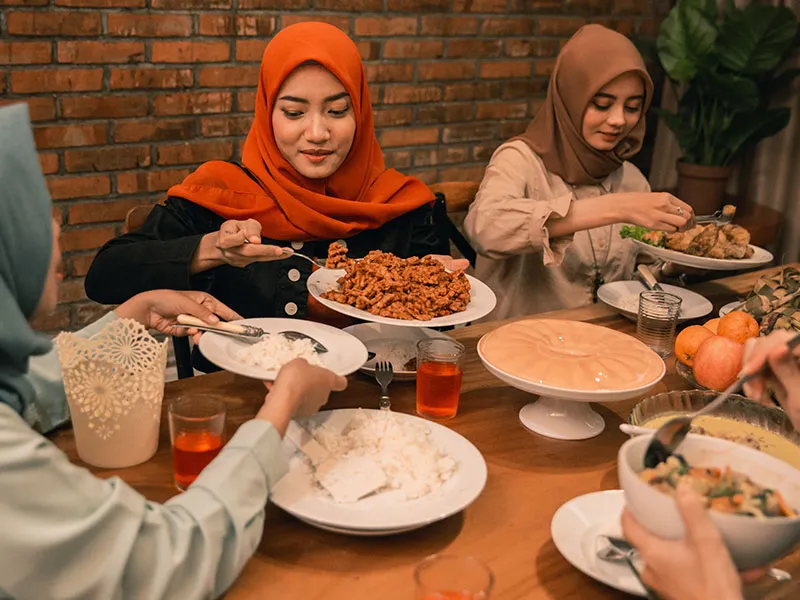
The must try delicacies of Ramadan
After breaking the fast Muslims often enjoy a range of delicious and traditional dishes. Here are some of the mouth-watering food one must try:
Dates
Dates are an important part of the iftar meal during Ramadan. Muslims around the world break their fast by eating dates and drinking water. It is mentioned in the Quran as one of the blessed fruits and are believed to have been the Prophet Muhammad’s favorite fruit. Eating dates is also a way to express gratitude to Allah for providing sustenance and blessings.
Dates are a natural source of energy and are rich in essential nutrients such as fiber, potassium, magnesium, and vitamin B6. They provide quick energy to the body after a long day of fasting and help to replenish the body’s sugar and nutrient levels.
Dates are an integral part of the iftar meal during Ramadan, and they hold both nutritional and religious significance for Muslims.

Kibbeh
Kibbeh is a popular Middle Eastern dish that is often served during Iftar. Kibbeh is a savory dish made of ground meat mixed with bulgur wheat, onion, and spices, and then shaped into balls, patties and torpedoes it can either be baked or fried.
Kibbeh is a nutritious and protein-rich dish that provides the body with energy and sustenance after a long day of fasting. It is also a delicious and satisfying dish that is enjoyed by many Muslims during Ramadan.
Kibbeh is often served with a variety of accompaniments, such as a yogurt dip, a tomato sauce, or a salad, depending on regional and personal preferences.
Kibbeh has a long history and is a traditional dish in many Middle Eastern countries. It is often prepared for special occasions, including Ramadan, and is enjoyed by people of all ages and backgrounds. It provides the body with energy and sustenance and is enjoyed by many Muslims as part of their Ramadan traditions

Lamb Ouzi
Lamb Ouzi is a traditional Arabian dish that is often served during special occasions, including Ramadan iftar meals. It is a roasted lamb dish that is typically seasoned with a blend of aromatic spices such as cinnamon, cardamom, and clove, and served on a bed of rice with vegetables and nuts.
The dish is typically prepared by roasting a whole lamb over a spit, which gives the meat a smoky and flavorful taste. The lamb is then removed from the spit and served with rice, which has been cooked with spices, vegetables, and sometimes nuts, such as almonds or pine nuts.
The dish is often garnished with fresh herbs, such as parsley or coriander, and sometimes served with a side salad or a yogurt dip.
It usually looks like Biryani but the way its’ prepared is different. This dish is a symbol of hospitality and generosity and is enjoyed by many people during the holy month.

Dawood Basha
Dawood Basha is a traditional Lebanese meatball dish that is often served as part of a meze spread or as a main course. The dish is made with small meatballs that are cooked in a tomato-based sauce and is typically served with rice or bread.
Ground beef or lamb is mixed with breadcrumbs, egg, spices, and onion, and then shaped into small meatballs. The meatballs are then browned in a pan until they are cooked through and golden brown. Meanwhile, a sauce is made by sautéing onions and garlic in olive oil, and then adding canned tomatoes, tomato paste, and spices. The meatballs are then added to the sauce and simmered until the flavors have melded together and the sauce has thickened.
Dawood Basha is a delicious and hearty dish that is full of flavor and texture. The combination of the juicy meatballs and the tangy tomato sauce is balanced perfectly by the fragrant spices, and the dish is typically garnished with fresh herbs, such as parsley or mint, which add a burst of freshness to the dish.
Overall, Dawood Basha is a wonderful and flavorful dish that is sure to be a hit with anyone who loves meatballs or hearty stews. It is a great way to explore the flavors of Lebanese cuisine and is perfect for sharing with friends and family
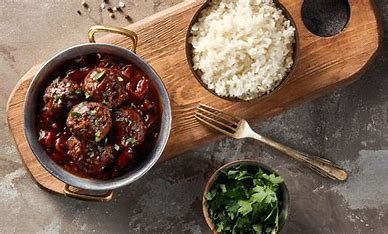
Shorbat Adas
Shorbat Adas is a soup that is commonly served during Ramadan. It is a hearty and nutritious soup that is made with lamb or beef, lentils, and vegetables, and is often served during iftar, the evening meal that breaks the daily fast. It feels like a hug when one consumes it warm.
Shorbat Afas is a nutritious and filling soup that provides the body with the protein and energy it needs after a long day of fasting. It is typically served with a squeeze of lemon juice and some fresh herbs, such as parsley or cilantro, which add a burst of freshness and flavor to the dish.
If you are planning to serve Shorbat Adas during iftar, it is important to make sure that it is cooked thoroughly and served hot. Additionally, it is a good idea to pair it with some fresh bread or crackers to help soak up the delicious broth and make the meal more satisfying.
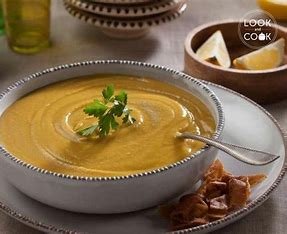
Haleem
Haleem is a hearty and flavorful stew made with meat, lentils, and wheat, and is often served during iftar, the evening meal that breaks the daily fast during Ramadan.
Haleem is a nutritious and filling dish that is ideal for breaking the fast after a long day of abstaining from food and drink. It is typically slow-cooked for several hours, which allows the flavors to blend together and results in a rich and thick stew that is packed with protein and complex carbohydrates.
Haleem is also a delicious and satisfying dish that is enjoyed by many people around the world. It is often garnished with a variety of toppings, such as chopped onions, fresh coriander, and crispy fried onions, which add texture and flavor to the dish.
Haleem tastes best when it is cooked thoroughly and served hot. Additionally, it is a good idea to pair it with some fresh fruit or a light salad to balance out the flavors and textures.
Overall, haleem is a wonderful and flavorful dish that is perfect for iftar during Ramadan. It is a great way to break the fast and provide your body with the nutrition it needs after a long day of fasting

Baklava
Baklava is a sweet pastry that is popular in Balkan countries. It is made by layering thin sheets of phyllo pastry with chopped nuts, usually pistachios or walnuts, and then drizzling the layers with a sweet syrup made of honey, sugar, and lemon juice.
Baklava has a flaky texture and a rich, sweet flavor that makes it a favorite dessert or snack for many people. It is often served on special occasions or during religious holidays, such as Eid al-Fitr, Ramadan, and Christmas.
Today, there are many different variations of baklava, with each country and region having its own unique recipe and twist on the classic dessert.
Overall, baklava is a delicious and popular pastry that is enjoyed by many people around the world. Whether as a dessert or a snack, it is a sweet and satisfying treat that is sure to please anyone with a sweet tooth
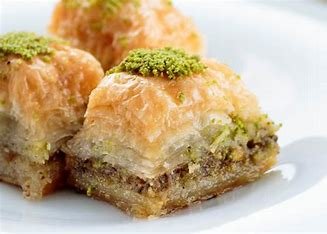
Kunafeh
Kunafeh, also spelled kunafa or knafeh, is a traditional Middle Eastern dessert that is often served during iftar, the evening meal that breaks the daily fast during Ramadan. It is a sweet and rich pastry that is made with shredded phyllo dough, cheese, and a sweet syrup.
A layer of shredded phyllo dough is mixed with melted butter and then pressed into a baking dish. A layer of cheese, typically mozzarella, is then added on top of the phyllo dough, then another layer of shredded phyllo dough is added on top of the cheese. The pastry is then baked until the cheese is melted and bubbly, and the pastry is golden brown and crispy.
Once the kunafeh is done baking, it is soaked in a sweet syrup made from sugar, water, and a touch of lemon juice or orange blossom water. The syrup is typically flavored with spices, such as cinnamon or cardamom, and is poured over the hot pastry, allowing it to soak in and infuse the dessert with even more flavor.
Kunafeh is typically served warm, and is often garnished with chopped pistachios or other nuts, which add a crunch and contrast to the sweet and creamy pastry.
Overall, kunafeh is a delicious and decadent dessert that is perfect for sharing with friends and family during iftar.

Jallab
Jallab is a traditional Middle Eastern drink that is often served during iftar, the evening meal that breaks the daily fast during Ramadan. It is a sweet and refreshing beverage that is made with a combination of grape molasses, rose water, and sugar, and is typically served over ice.
A mixture of grape molasses, water, and sugar is boiled until it is thick and syrupy, and then strained to remove any solids. The syrup is then combined with cold water and rose water, and is typically served over ice, garnished with pine nuts and raisins.
Jallab is a popular drink in many Middle Eastern countries, and its sweet and fruity flavors make it a perfect way to break the fast after a long day of fasting. It is also a great way to stay hydrated during Ramadan.
Jallab is a delicious and refreshing drink that is perfect for any iftar meal during Ramadan. Its sweet and fruity flavors make it a favorite among many people in the Middle East, and it is a wonderful way to stay hydrated and nourished during fast.

Importance of food in Ramadan
Food plays a vital role in the holy month of Ramadan. Food is necessary for the nourishment of the body, and during Ramadan, Muslims need to ensure that they eat sufficient and healthy food before starting the fast.
In Islam, fasting during Ramadan is not just about abstaining from food and drink; it is also a spiritual practice that helps Muslims focus on their faith, introspection, and moral character as Muslims get an opportunity to reflect on their blessings and to give to charity, particularly to those who are less fortunate. Many Muslims choose to provide food and other necessities to the poor during Ramadan.
Food is also a means of celebration during Ramadan. Muslims often prepare traditional dishes and sweets to enjoy during iftar, which adds to the festive atmosphere of the month. Iftar brings people together where to break their fast which also gives people a sense of community and strengthens social bonds among Muslims.
In conclusion, food plays a vital role in Ramadan for Muslims, as it provides nourishment, has spiritual significance, promotes community, fosters charity, and enhances the celebration of the month.



